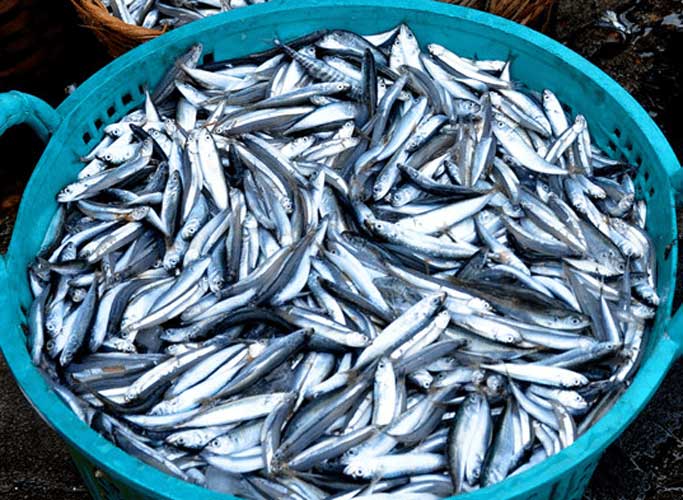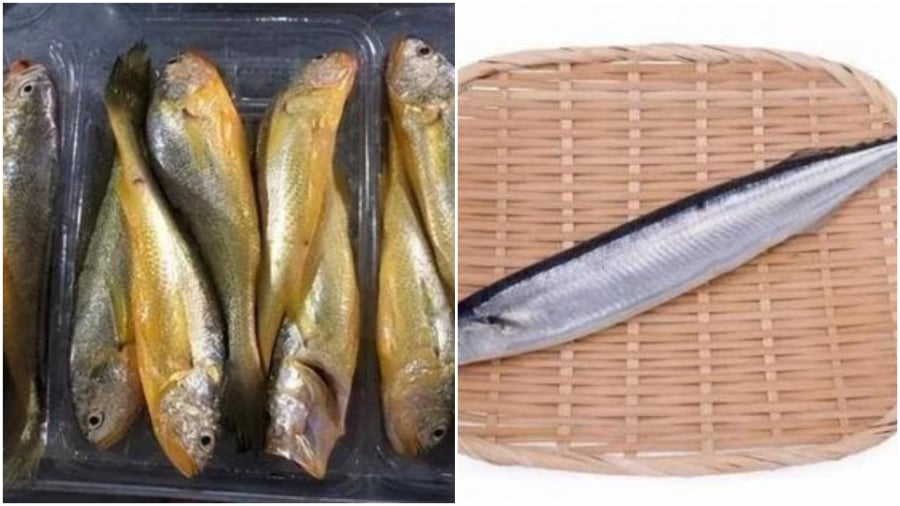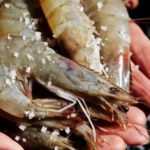Small Yellowtail
According to nutrition experts, the small yellowtail is a famous delicious seafood with soft and uniquely delicious meat. According to experts, the main reason why it is difficult to artificially breed small yellowtail is because it is a migratory fish with a complex life history and needs to migrate between rivers and the ocean. Artificial reproduction cannot provide a suitable migratory environment, so the small yellowtail cannot complete its natural reproductive and developmental processes.
Secondly, the food chain of the small yellowtail is relatively complex. Its diet is very rich and relies on a large amount of plankton and small bottom-dwelling animals. This makes it unable to meet its diverse food needs in captive conditions, leading to growth limitations. Therefore, this is an extremely nutritious fish that should not be overlooked and should not be fed with chemicals.

Nutritious Anchovy without Chemicals
Anchovy
Anchovies are small fish and are usually found in natural environments. Because anchovies have a lot of bones, many people choose this fish to make dried fish or fish sauce. But few people know that this fish is extremely nutritious and good for your health.
Anchovies are rich in omega-3 fatty acids, vitamins, calcium, and minerals… so if you eat anchovies every day, your body will be very firm and prevent diseases related to cardiovascular, coronary artery, and blood lipids. At the same time, because anchovies live in a completely natural environment without being fed chemicals, there is no risk of toxic poisoning for your health.

3 Types of Fish without Chemicals
Swordfish
Swordfish is a popular and highly valued economic fish with important nutritional content and is particularly favored in food processing. However, the artificial reproduction of swordfish faces some difficulties. Firstly, swordfish are migratory fish, and their migration depends on water temperature, ocean currents, and specific food sources. These natural conditions are difficult to simulate in an artificial breeding environment, so large-scale artificial swordfish breeding has not been successfully implemented.
Swordfish is rich in high-quality protein, omega-3 fatty acids, vitamin D, and minerals, playing an important role in human health. It is considered a nutritious fish that helps enhance immune function, improve cardiovascular and cerebral blood vessel functions, and strengthen bone health. Omega-3 fatty acids in swordfish help reduce cholesterol and triglycerides in the blood, reduce the risk of atherosclerosis, improve cardiovascular and cerebral blood vessel functions. In addition, swordfish is rich in vitamin D, which promotes calcium absorption and healthy bone development.
Discover the Top 12 Omega-3 Rich Foods
Contrary to popular belief, not all fats can be harmful to our health. In fact, some types of fat can be beneficial, assisting in the process of maintaining a healthy lifestyle. We often hesitate to consume fat due to fear of gaining weight, but it can be beneficial to learn more about the different types available.





































